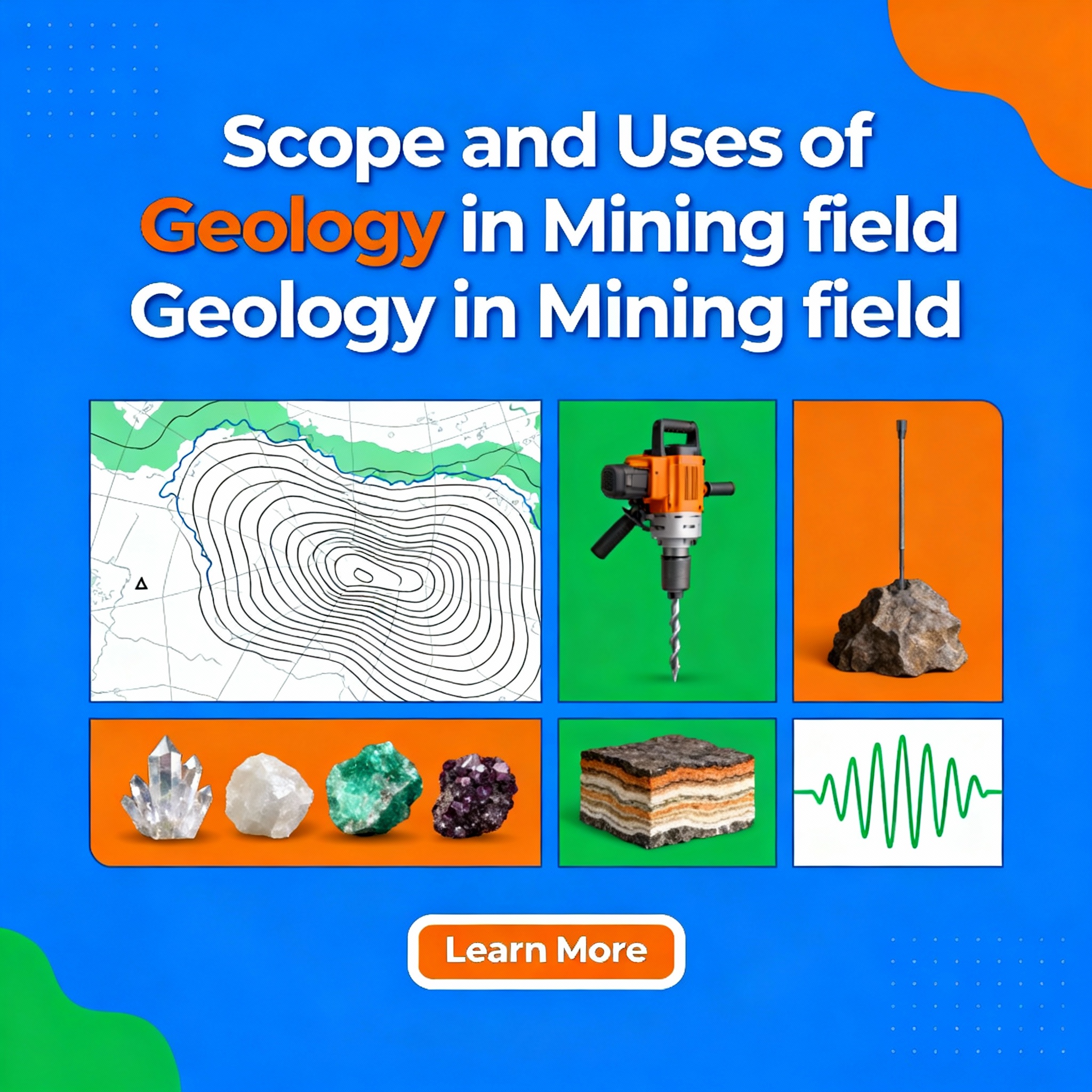Scope and Uses of Geology in Mining field
Geology plays a crucial role in the mining industry. It provides valuable information and insights that help in the exploration, extraction, and management of mineral resources. Here are some key aspects of geology and its uses in the mining field:
Exploration: Geology is essential in identifying and locating mineral deposits. Geologists study the Earth’s composition, structure, and history to understand the formation and distribution of minerals. They use various geological techniques, such as remote sensing, geological mapping, geochemical surveys, and geophysical methods, to identify prospective areas for mineral exploration.
Resource Assessment: Geologists assess the quantity and quality of mineral resources through geological surveys and sampling. They estimate the size, grade, and economic viability of deposits, providing critical information for mining companies and investors to make informed decisions regarding the development of a mine.
Deposit Modeling: Geologists create geological models of mineral deposits based on their understanding of the rock types, mineralization processes, and structural controls. These models help determine the geometry and characteristics of the ore body, enabling efficient mine planning and optimal extraction methods.
Mining Methods: Geology influences the selection of mining methods. Different mineral deposits require specific extraction techniques. For example, open-pit mining is suitable for shallow, near-surface deposits, while underground mining is used for deeper or narrow veins. Geologists provide input on the most appropriate mining methods based on the geological characteristics of the deposit.
Safety and Stability: Geologists assess the stability of the rock masses in mining operations. They study the geomechanical properties of the rocks to identify potential hazards such as ground instability, rockfalls, or mine collapses. This information helps in designing safe and stable mining operations, including support systems and ground control measures.
Environmental Impact Assessment: Geologists play a vital role in assessing the environmental impact of mining activities. They study the hydrogeology, surface water quality, and geochemical processes to evaluate the potential impacts on water resources, ecosystems, and surrounding communities. Geologists contribute to the development of mitigation strategies and monitoring programs to minimize and manage environmental impacts.
Mine Reclamation: Geologists are involved in mine reclamation and closure planning. They assess the post-mining landforms, geology, and soil properties to determine the best approaches for reclamation and ecological restoration. By understanding the local geology, geologists can design effective strategies for stabilizing the terrain, restoring vegetation, and mitigating any residual environmental impacts.
Overall, geology provides the foundation for successful and sustainable mining operations. It helps in identifying mineral resources, optimizing extraction methods, ensuring safety, mitigating environmental impacts, and planning for mine closure and reclamation. Geologists work closely with mining engineers, environmental specialists, and other professionals to ensure efficient and responsible mining practices.


